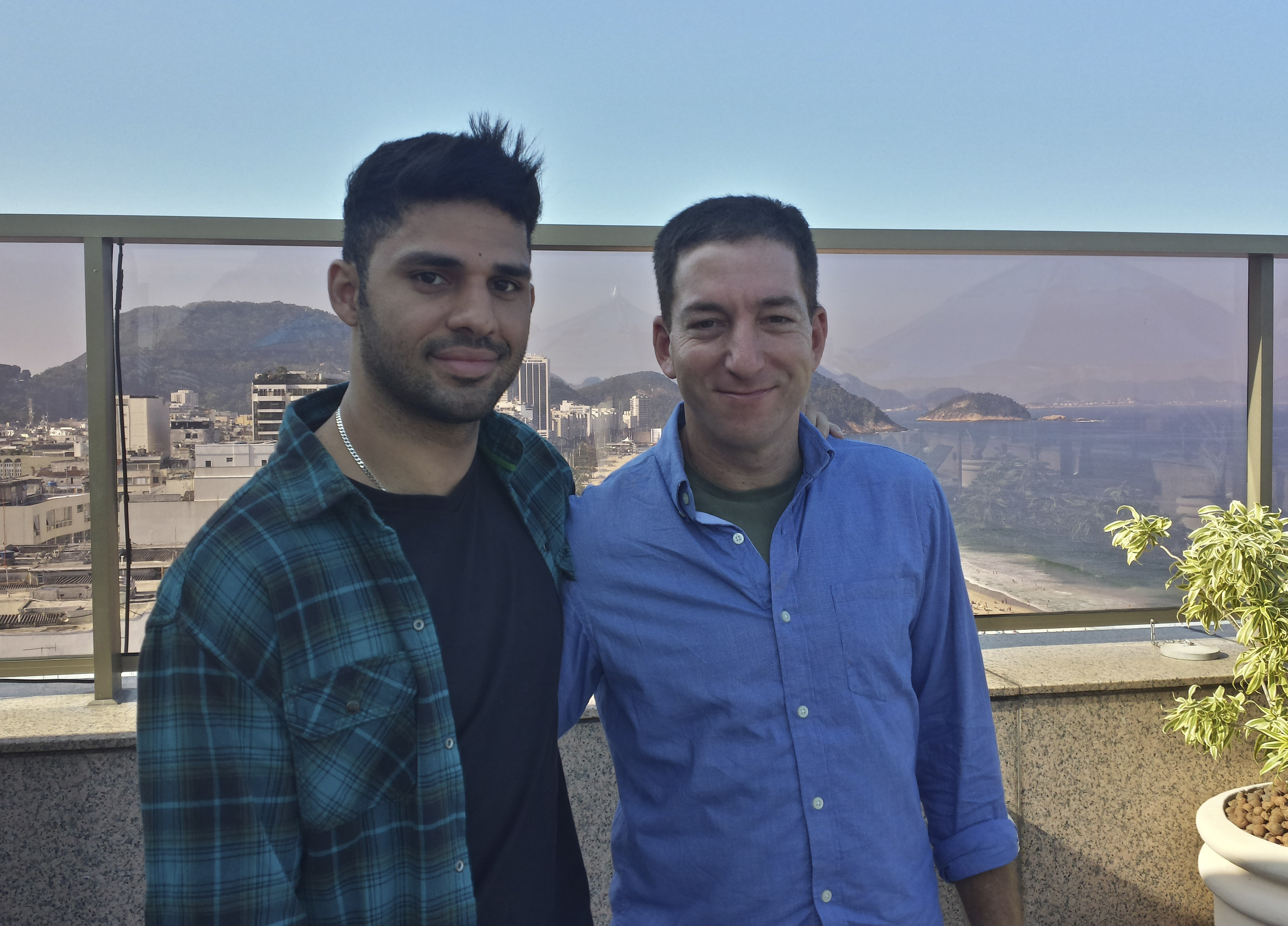LONDON (AP) — The British government broke its silence Tuesday about the detention of a journalist’s partner for nine hours at Heathrow Airport, saying authorities “have a duty to protect the public and our national security.”
Videos by Rare
Police used a contentious anti-terrorism law to detain David Miranda, the partner of Guardian newspaper journalist Glenn Greenwald, on Sunday. Greenwald has published stories about U.S. and British surveillance programs based on documents leaked by former National Security Agency contractor Edward Snowden.
Miranda was held for nearly nine hours — the maximum allowed by law — and had electronic equipment confiscated.
“The government and the police have a duty to protect the public and our national security,” the Home Office said in a statement, adding that police were right to stop people suspected of possessing “highly sensitive stolen information that would help terrorism.”
“Those who oppose this sort of action need to think about what they are condoning,” it said.
Guardian editor Alan Rusbridger said Tuesday that Miranda and Greenwald were taking legal action against the British government over the detention and would seek the return of the seized items.
The government had previously said the decision to stop Miranda was made by police, but White House spokesman Josh Earnest said Monday that Britain had tipped off the U.S. government that Miranda would be detained.
Britain’s opposition Labour Party demanded to know whether the government was aware in advance of the decision to detain Miranda.
“The home secretary needs to tell us whether she or the prime minister were informed or involved in this decision,” said Labour law-and-order spokeswoman Yvette Cooper. “Is it really possible that the American president was told what was happening but the British prime minister wasn’t?”
The Home Office said it could not “comment on the specifics” of an ongoing police inquiry.
The Guardian and civil liberties groups have condemned the use of counter-terrorism legislation to detain a journalist’s partner.
Miranda, a 28-year-old university student, was traveling home to Brazil after visiting Germany, where he met with Laura Poitras, a U.S. filmmaker who has worked with Greenwald on the NSA stories. Greenwald said Miranda was carrying materials between the two, but didn’t specify what they were.
The piece of legislation used — Schedule 7 of the Terrorism Act — is especially contentious because it allows police to stop people passing through airports without suspicion they have committed an offense. It allows people to be held for up to nine hours, although the vast majority of stops last an hour or less.
After pressure from civil libertarians, the government is in the process of reducing the time limit to six hours and imposing other safeguards, but critics say the measure remains too broad and is open to abuse.
The Metropolitan Police said the use of Schedule 7 to stop Miranda “was legally and procedurally sound.”
Rusbridger characterized the detention of Miranda as part of a campaign of official intimidation against the newspaper since it began publishing stories based on Snowden’s leaks in June. The articles revealed details of surveillance of electronic communications carried out by U.S. and British spies.
Rusbridger said senior government officials had demanded the return or destruction of Snowden’s material, eventually threatening legal action if the newspaper did not comply.
Rusbridger told the BBC Tuesday that it became clear that “the government was on the verge of launching legal action against the Guardian.”
He said that faced with that threat, he agreed to destroy hard drives containing Snowden’s material at The Guardian’s London offices, while staffers from British eavesdropping agency GCHQ watched.
Rusbridger said The Guardian had other copies of the material that was destroyed.
Kirsty Hughes, chief executive of Index on Censorship, said that “using the threat of legal action to force a newspaper into destroying material is a direct attack on press freedom in the U.K.”
___
Jill Lawless can be reached at http://Twitter.com/JillLawless
Copyright 2013 The Associated Press.



